Csokonai National Theatre, located at 10 Kossuth Street in a beautiful historic building constructed between 1861-65, is the oldest and largest theatre in Debrecen. The company offers a wide range of genres from musicals to comedies, from absurd dramas to operas. Theater lovers now can enjoy the performances with English subtitles.
Performances with English subtitles in January at the Csokonai National Theatre:
Gilles Ségal: The Puppetmaster – The tragicomic life of Samuel Finkelbaum
– January 10. 19:00 – Premiere
– January 23. 19:00
A co-production performance between the Csokonai National Theatre Debrecen, Maladype Theatre Budapest, Federation of Hungarian Jewish Communities in Honor of the 80th Anniversary of the Holocaust.
Author Gilles Ségal, who was born in Romania and lived and worked in France, upon completing his play The Puppetmaster exclaimed: “I wanted to write something light.” However, his work turned out to be anything but: its protagonist, who embodies the tragedy of the entire human race, is Samuel Finkelbaum, a world-famous puppeteer and a Birkenau survivor living in the divided city of Berlin five years after World War II. Despite numerous efforts to convince him otherwise, he doesn’t believe that the war is over and he no longer needs to hide. Thus, he spends his days locked away in a room with the puppets of his wife, who perished in the concentration camp, and his child who was never born as he prepares for the grand performance of his life, entitled The Tragicomic Life of Samuel Finkelbaum.
The puppeteer’s alternate reality is framed by a classic “theater within the theater” setup, and the arrival of a friend who might finally convince Finkelbaum that the war is indeed over. Or is it?
Director: Zoltán Balázs
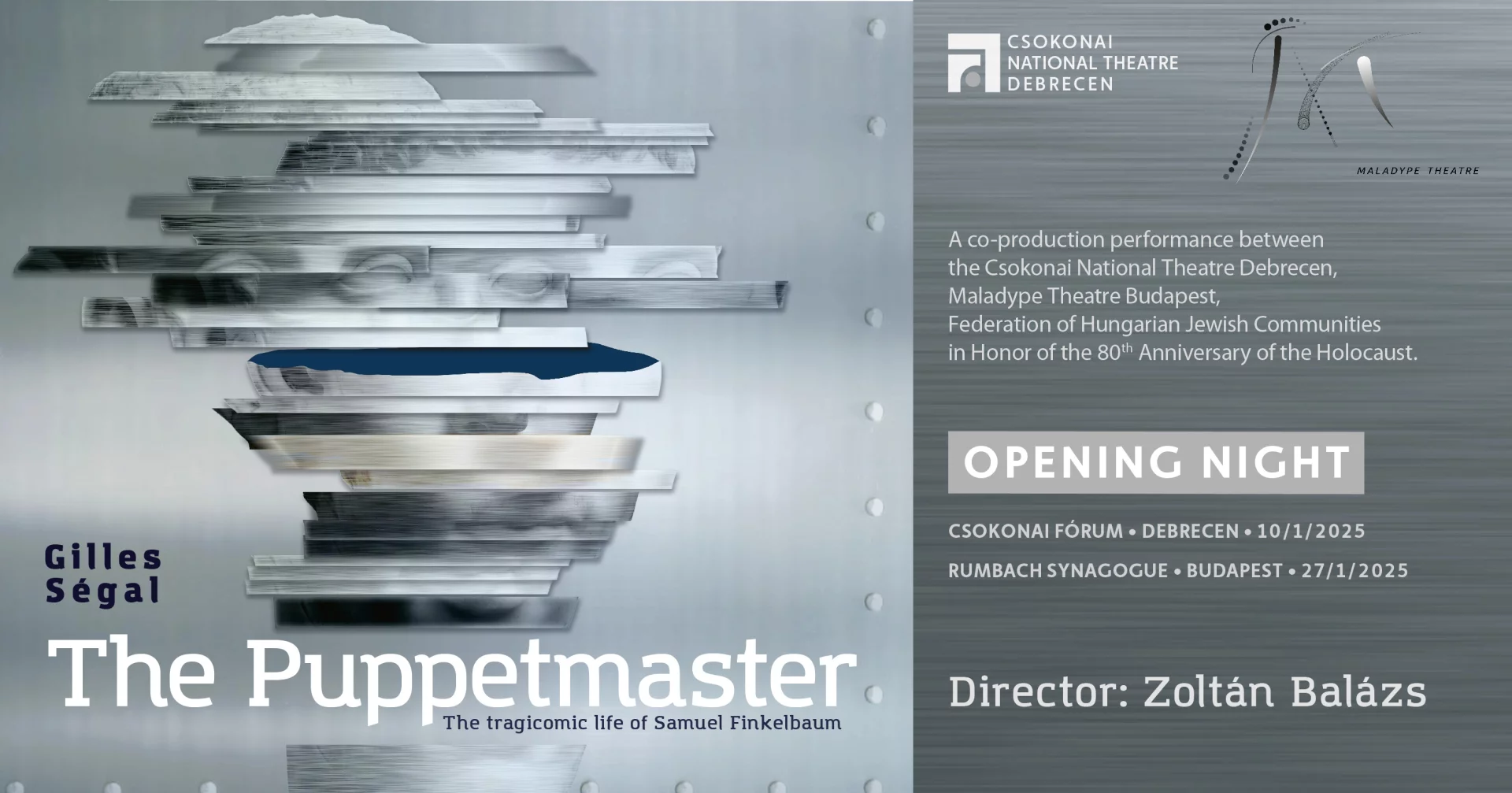
Samuel Beckett: Waiting for Godot
– January 17. 19:00
In the directorial carreer of István K. Szabó, Samuel Beckett’s classic play returns every ten years. By his own admission, the play serves as a kind of benchmark for him in interpreting and processing a period of waiting (a phase of life). While his 2004 production explored the absurdity of meaningless waiting, and the 2014 adaptation examined the painful process of waiting for inevitable annihilation, in 2024, the focus shifts to the search for identity—probing individual and collective memory in the hope of some form of divine restitution.
Director: István K. Szabó
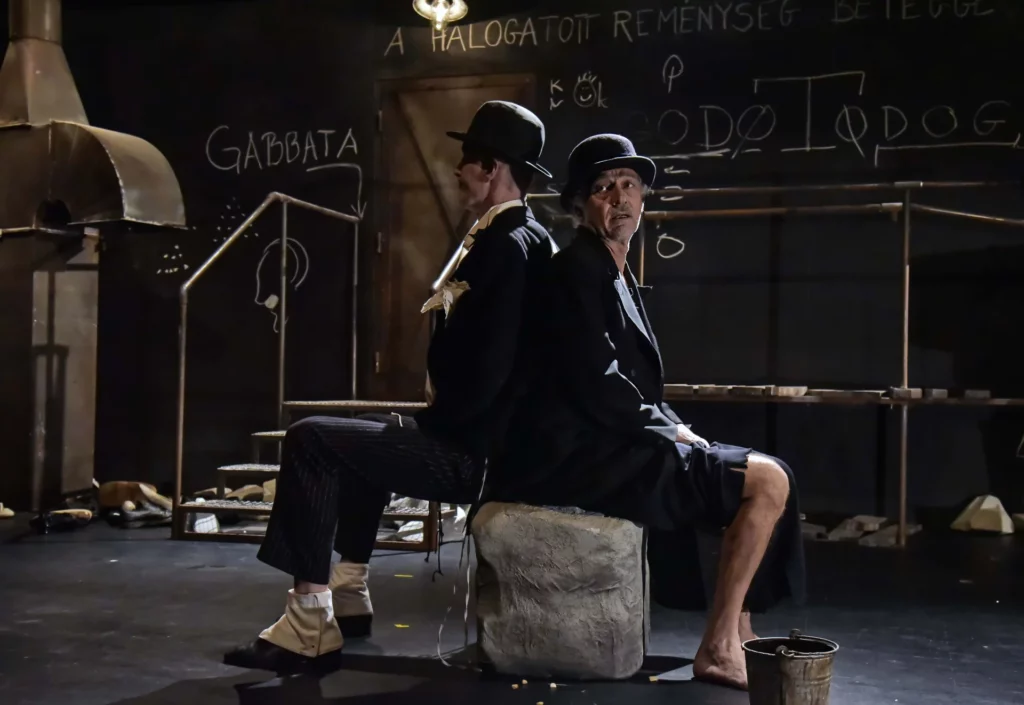
Michael Frayn: Noises Off!
– January 24. 19:00
If reporter-turned-playwright Michael Frayn hadn’t almost fallen asleep back in 1982, at a theater performance directed by one of his friends, the world would have one less hilarious comedy. This was when Frayn realized: how thrilling the theater could be from behind the scenes than from the front, conceiving the idea of writing a play that takes the audience behind the courtains. Namely, in the first act, after a disastrous main rehearsal of a production going on a country tour – during which not only the actors but also the director collapses – the second act offers the audience a peek behind the curtains during the final stop of the tour, witnessing the scandalous details from the back. At this point, not only the professional problems come to light, but also the personal anomalies of the characters, highlighting how an artist’s unsettled soul can impact their evening performance.
The popular comedy was adapted to film in 1992, and has been played continuously ever since on stages both in Hungary and around the world.
Director: Illés Horváth
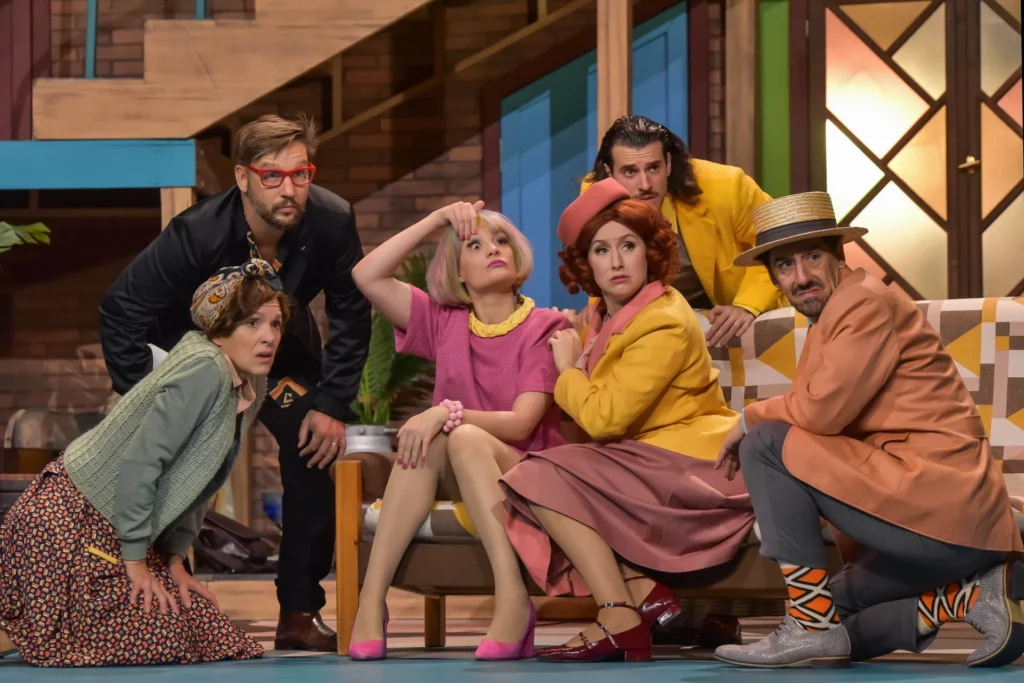
Astor Piazzolla – Horacio Ferrer: María de Buenos Aires
– January 29. 19:00
– January 30. 19:00
In Astor Piazzolla’s now classic tango-opera, María de Buenos Aires, the titular character, María is not only the soul of her city, Buenos Aires, but also the personification of tango itself. She is a girl who lives by night, as the Argentine heart is only truly revealed when tango is danced in the dark hours. Her passion for dance is entwined with her fate: she becomes a prostitute, falls in love, but ends up in the clutches of thieves and pimps, and is ultimately murdered. In the second part, we only see her spirit, floating in the city that embodies Hell. However, with the help of El Duende, a goblin-like figure from Argentine mythology, she finds redemption. Yet, her rebirth and aspirations of becoming a mother prove futile, as mirrored in the phrase that best describes her nature: “she was born on a day when God was drunk.” This enigmatic statement is underscored by a musical world that brilliantly combines classical music with jazz and traditional tango, blending tight rhythmic compositions with dissonant tones. András Lóránt’ direction further enhances this by highlighting the symbolic meanings within Horacio Ferrer’s text related to each character.
Director – choreographer: András Lóránt
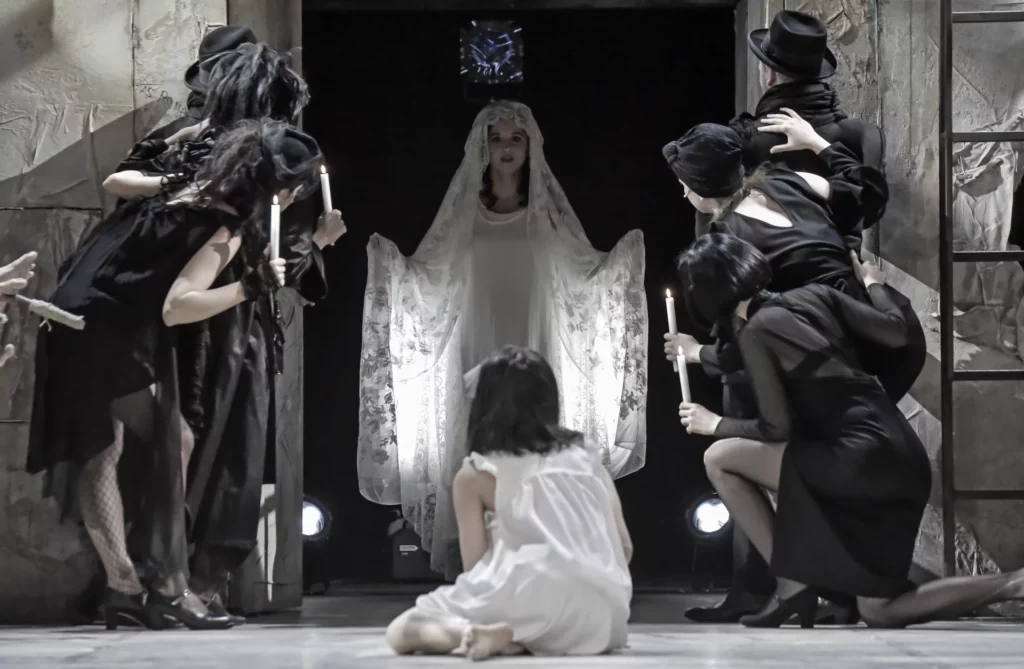
F. M. Dostoyevsky: Demons
– January 31. 19:00
“We are all nihilists,” stated Fyodor Mikhailovich Dostoevsky, one of the greatest Russian writers of all time, in response to the social processes of his homeland during the last third of the 19th century. However, in this case the term “nihilist” does not refer to the Nietzschean metaphysical negation, but rather to a distinctly Russian phenomenon—the revolutionary movement of the “sons” who, through critical examination, rejected the traditions of the “fathers” generation.
For example, the movement depicted by the “gang of five” in one of his major novels, Demons, serves as the point of departure for Macedonian director Dejan Projkovski’s exploration of the human soul, much like the author’s own forays. Projkovski is intrigued by the question of how, just as sacred music can distinguish the angelic from the demonic by a quarter tone, plucking certain strings within a person can turn them from an “angel” into a “demon.” He investigates how a movement, initially aimed at improving society, could lead its participants to become bloodthirsty killers, monstrous beings that devour both themselves and their ideals through the misinterpretation of the guiding ideologies.
As to whether there is a way out of this state of mind, whether it is possible to recreate the angel in humanity, is something Projkovski presents on stage as a journey through heart and soul.
Director: Dejan Projkovski
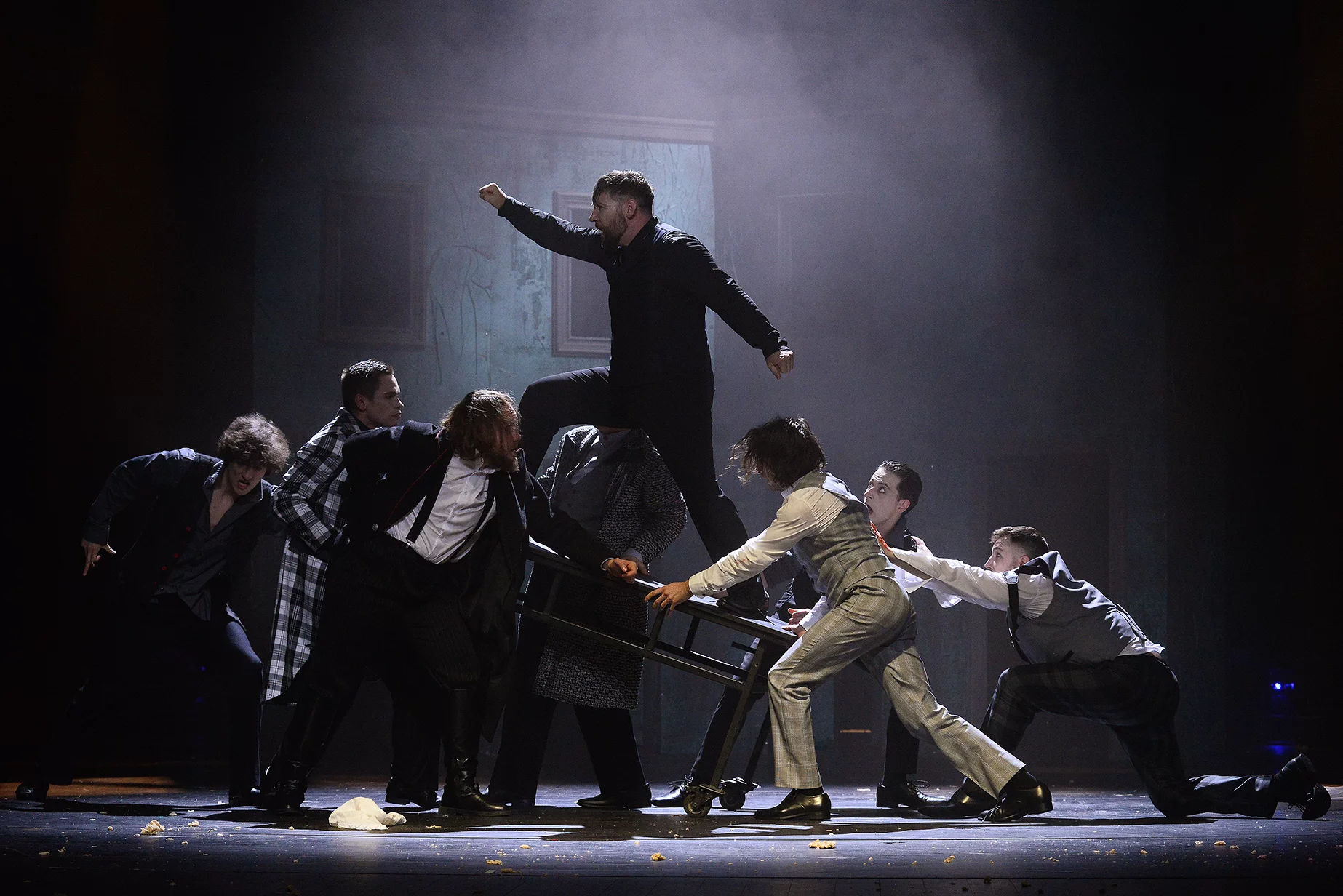
More information about the plays, performances and tickets is available HERE.